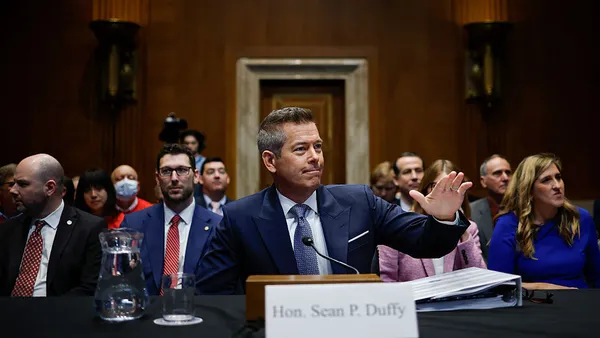Dive Brief:
- OSHA has issued temporary guidance for contractors clarifying under what circumstances a case of COVID-19 on the jobsite should be recorded as an illness on OSHA Form 300: Log of Work-Related Injuries and Illnesses and other agency forms.
- OSHA does not consider construction a high-risk industry like healthcare and emergency response industries are when it comes to transmission of the virus, so the agency said it will not enforce record-keeping requirements to mandate that contractors make determinations regarding whether a COVID-19 case is work related or not.
- The exception is when there is "reasonably available" objective evidence that a COVID-19 case may be work related. In those cases, contractors are required to log the case when it is confirmed and involves one or more of general recording criteria, like medical treatment beyond first aid or days away from work.
Dive Insight:
Attorney Phillip Russell with Ogletree, Deakins, Nash, Smoak, & Stewart in Tampa, Florida, said OSHA is not changing any rules with this guidance but simply clarifying to contractors and other employers in low-risk industries that recordable COVID-19 cases must be work related.
"I think they had to [issue] something like this because there were a lot of questions," he said. "They want employers focused on mitigation and not worried about whether they have to record or not."
If there are several workers who ride in the same work truck every day, for example, and one is diagnosed with COVID-19 and then a second worker who rides in that truck also is diagnosed, that is probably objective evidence that the transmission is work related, Russell said. However, if both workers attended the same party at the home of someone who had COVID-19, then the employer can consider that evidence as well and determine the cases are not work related.
Russell said the second point of OSHA's guidance — that construction firms can use whatever information is reasonably available to them in deciding whether a COVID-19 case is recordable — is the most material piece. He added that the message from OSHA seems to be that employers should use whatever information they obtain in the regular course of business when determining whether the case is work related and that they are not required to conduct an investigation — although the guidance does not preclude them from doing so.
If an employee uses paid sick leave, misses work, or provides a sick note from a doctor, documents from a workers compensation claim, or information that indicates the transmission took place offsite — these are all things that can be used in deciding whether a COVID-19 illness is work related.
The Construction Industry Safety Coalition, whose member organizations include the Associated General Contractors of America and the Associated Builders and Contractors, sent a letter to the agency earlier this month asking that it reconsider its policy of treating COVID-19 as a recordable illness.
The coalition said that recording COVID-19 cases could "skew" statistics on injuries and illnesses and "put construction employers in an almost impossible position" as they try to decide whether employees acquired the fast-spreading virus on or away from the job.










